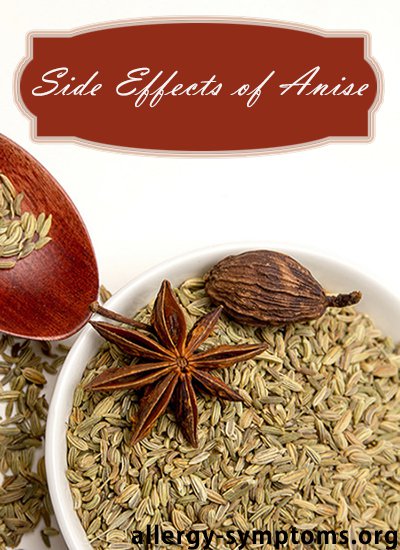
Many nutritional substances are housed in the womb of Mother Nature. Anise is an herb renowned for its medicinal and culinary purposes. In India it’s a custom to eat aniseed after having meals, because it has digestion properties.
However, there are side effects of anise that you must discuss with the doctor. Anise oil and seeds are both prominently used in most home remedies. Its aromatic smell helps to refresh breathe after having dinner. Essential oil derived from this herb is used in soaps, perfumes and other personal care products.
Anise Side Effects
Skin Reaction: In certain people topical application of anise essential oil can cause mild allergic skin reaction. Itching, redness and swelling can be seen. You must stop its usage and try anti-inflammatory remedies like olive oil.
If reaction persists consult dermatologist for diagnosis and treatment.
Digestive and Respiratory Reaction: Because of its medicinal properties, many people internally use aniseed and its supplements. But, in hypersensitive people allergic reaction may trigger and lead to various symptoms.
Nausea, vomiting, wheezing or breathing problem, diarrhea and serious signs may result in abnormal behavioral changes. Person who experience severe signs after ingesting aniseed need immediate medical attention.
Chronic ailments like scabies and psoriasis can be reduced using anise essential oil. But, in few cases anise may contradict with other medications and reduce their effect.
Anise has estrogen like effect, so people with health ailments must consult their doctor before taking anise supplements. If you’ve hormone sensitive condition, uterine, breast or ovarian cancer and endometriosis, then stay away from aniseed use for medical benefit.
Pregnant women should excessively use aniseeds, as it is reputed for abortifacient.
Recommended dosage of anise essential oil is 0.1 to 0.03 mL and 0.5 to 3 g of seed.

